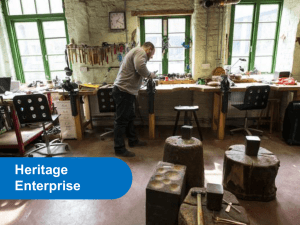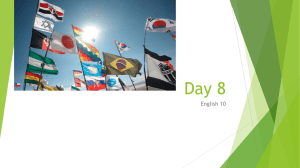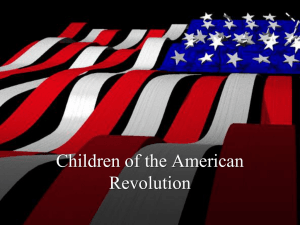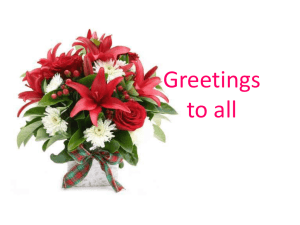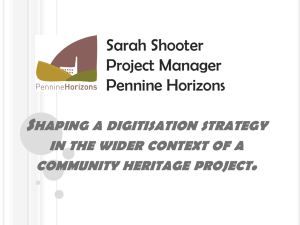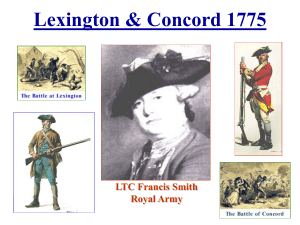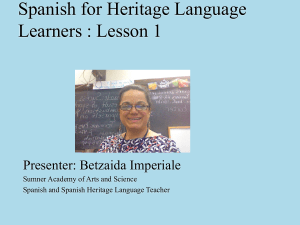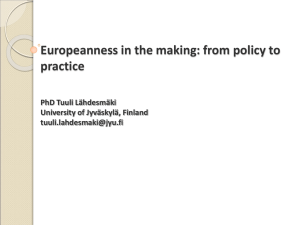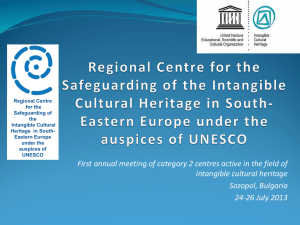The Oyu Tolgoi Cultural Heritage Program
advertisement
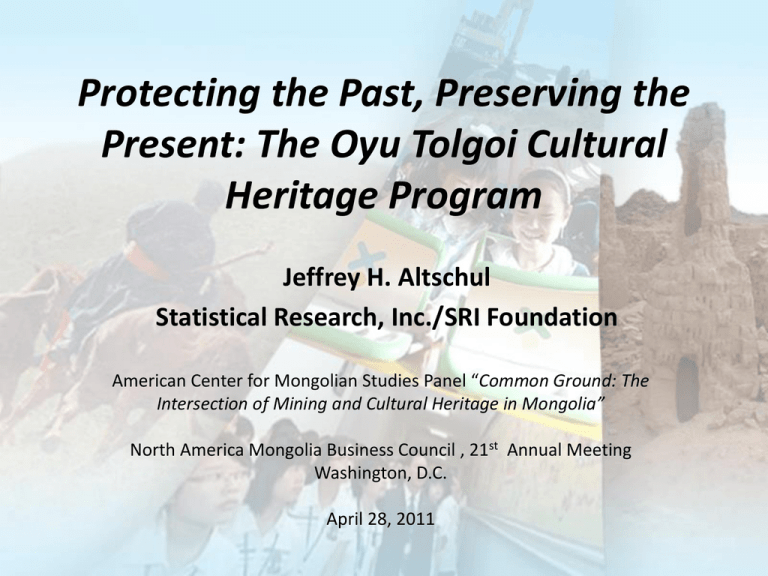
Protecting the Past, Preserving the Present: The Oyu Tolgoi Cultural Heritage Program Jeffrey H. Altschul Statistical Research, Inc./SRI Foundation American Center for Mongolian Studies Panel “Common Ground: The Intersection of Mining and Cultural Heritage in Mongolia” North America Mongolia Business Council , 21st Annual Meeting Washington, D.C. April 28, 2011 Oyu Tolgoi What’s the Problem? From the Strategic Impact Assessment • The likelihood that there will be an increase in illegal excavations and disturbance of significant archaeological and paleontological resources • Increased in-migration (the majority non-Mongolian) will cause a weakening of local traditions and cultural identity • The project’s economic impact will lead to better prospects for preserving and protecting cultural heritage “In short, locals are concerned that objects and traditions may be lost but remain cautiously optimistic that mining operations will provide better opportunities to support local museums, protect resources in situ, restore and conserve damaged cultural items, and encourage heritage tourism.” Cultural Heritage Program (CHP) Design: Objectives and Goals “The objective of this study is to create a cultural heritage program specific to the Oyu Tolgoi (OT) project, the goal is for the OT CHP to serve as a model for the country.” • The identification, evaluation, and mitigation of tangible and intangible heritage • The creation of public outreach and education in the form of museums, school programs, and other venues • The structuring of heritage tourism so that the development of historic monuments, restoration of monasteries, and enhancement of traditional crafts have beneficial economic and social results • The development of sustainable culture mechanisms to ensure the survival of the uniquely Mongolian traditional way of life Finding the Balance To be successful, the CHP must allow economic development without destroying a traditional lifestyle. The CHP is not so much about preserving places and things as it is about establishing a process by which Mongolians determine who they are to become by ensuring that they know who they were. Ömnögovi aimag, showing direct impact areas in pink Three Elements of the CHP • Tangible Resources • Intangible Resources • Public Programs Tangible Resources • Archaeology • Paleontology • Historic Places Intangible Resources • • • • • • Nomadic Culture Customs Language Dances Songs Festivals Public Programs • Education • Museums • Heritage Tourism Project Organization Phase 1 • Literature search • Gap analysis • Baseline fieldwork • Community and stakeholder consultation • Assessment of the legal framework affecting cultural heritage • Cultural heritage inventory and mapping • Risk analysis • Establishment of a Standards of Acceptable Cultural Change framework Tangible Resources • Inventory of OT Direct Impact Area • Creation of a Database for Ömnögovi aimag • Predictive Model for Ömnögovi aimag Intangible Cultural Heritage • The South Gobi’s rich intangible heritage – – – – Silversmiths Nomadism Songs and singers Games • Sacred places • What to protect? How to protect it? Public Programs • Museums are places that: – Help people understand their own as well as other cultural heritage; – transform the tangible and intangible knowledge into forms of public involvement. • Integrating cultural heritage and education • Tourism: allowing people to engage in their history without destroying it The Problem with Compliance The Mongolian Law of Cultural Heritage – All mining companies must protect cultural heritage – The current compliance rate is 3.7 percent Cultural Heritage Loss – More than 3,000 archaeological sites have probably been disturbed or destroyed due to mining – Paleontological losses are incalculable – Rate of culture change is increasing Inconsistent Compliance – Some companies are very good – Some companies ignore the law Risks: Threats and Opportunities Five most important threats and opportunities to the cultural heritage of Ömnögovi aimag Threats • Loss of nomadic culture • Destruction of archaeological, historical and paleontological sites • Loss of customs and rituals • Negative impact of traditional social order • Loss of traditional animal husbandry Opportunities • Registration of cultural heritage and establishment of database • Improved research opportunities • World Heritage List Placements • New South Gobi Museum and improved soum museums • Enhancement of cultural centers Key Issues for the CHP • Public Policy • Comprehensive Solution to Intangible Resources • Capacity Building • Empowering Local Communities Public Policy Comprehensive Solution to Cultural Heritage The South Gobi Cultural Heritage Center Capacity Building Professional Training Training the Trainers Empowering Local Communities Standards of Acceptable Culture Change What conditions are acceptable and how do we obtain them? • Definition of acceptable resource and social conditions • Baseline conditions • Management actions • Monitoring A New Beginning • The OT CHP Design will be complete in July 2011 • Then the hard work begins!

